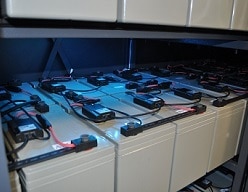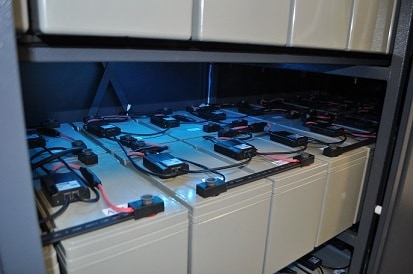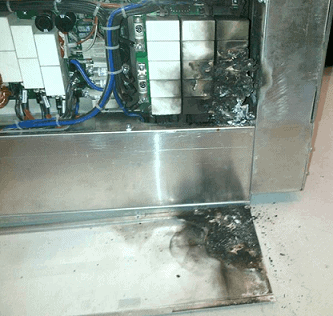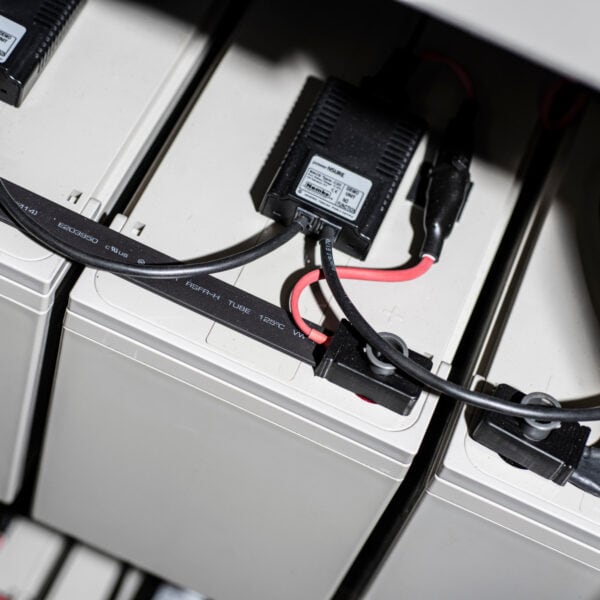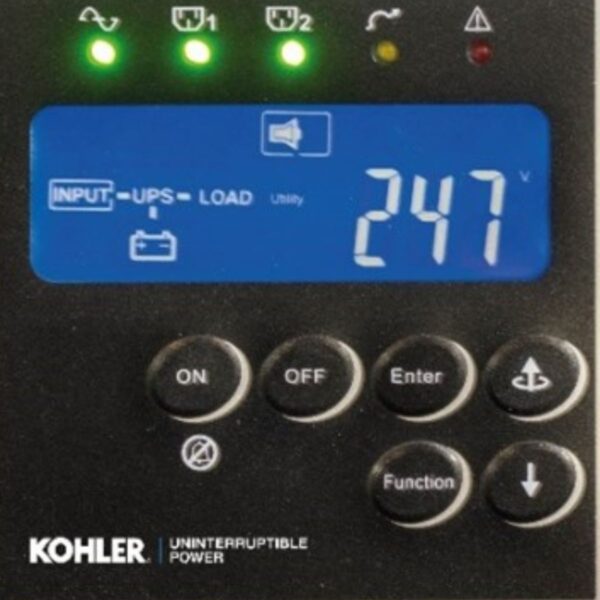Why buy a UPS system? One good reason is if your application is in any way mission-critical; another arises if revenue-generation activity would be halted by a power failure.
In either case, for IT resource and data centre managers to sleep easy at night, they must remain assured that their UPS investment will continue to provide clean, uninterrupted power to protect and extend the life of the site’s high-value, operationally essential equipment for as long as possible.
While most users are driven by this to take care in selecting a suitable UPS system, the importance of matching the UPS quality with an equally well-qualified service plan is not always recognised. This is surprising, as the service plan is vital; if correctly run, it will keep the purchased UPS system running safely and reliably for 15 years or more, while UPS stoppages for many reasons will inevitably occur in its absence.
The UPS battery, while being the heart of the system, is also a significant vulnerability, with typically 20% of UPS failures being attributed to bad batteries. Excessive temperature variations and cumulative charge-discharge cycles shorten UPS battery life; this can be especially disappointing for buyers who have relied on UPS manufacturers’ battery life estimates based on ideal conditions of 20°C temperatures and no working cycles. In fact, battery life is typically reduced by 50% for every 10°C increase in operational temperature. Additionally, a UPS battery that would withstand 1200 discharge cycles at typically 30% of discharge depth will last for just 250 cycles at typically 100% discharge depth.
A image of UPS batteries in a cabinet
An intelligent UPS service plan can mitigate these problems in many ways. The UPS system can run a battery self-test every 30-60 days, backed by an expert UPS engineer-conducted test every six months. Batteries should be renewed at 80% of their theoretical working life limit, while both battery monitoring systems and impedance testing should be deployed.
Capacitors and fans constitute other common failure causes. UPSs contain electrolytic capacitors which, like batteries, degrade over time, depending on electrical and thermal stress. Aging capacitors can reduce in performance, with leakage and swelling of the casing. A capacitor failure can often drive a UPS system into Bypass mode. Bypass switching can also be triggered by failures in fans, which are key guardians against overheating. Fan lifetime depends on electrical and mechanical qualities and specifications.
An image of the damage to the UPS caused by a blown Capacitor
Failures in both these components can be pre-empted through visual inspection during preventative maintenance, and maximising MTBF by replacing capacitors every 5-9 years, and fans every 3-4 years and again after 7-9 years.
Other failure causes include blocked air filters, incorrect input filter design and dirt in contactors.
Elements of an effective UPS service plan include an annual preventative maintenance schedule for both UPS and batteries, together with access to a rapid emergency response from trained UPS engineers, with 24/7 availability and guaranteed on-site response times. These services should be backed by technical support and comprehensive, locally available and instantly accessible spare parts. UPS monitoring services, with monthly trended reporting, 24/7 alarm notification, and rapid response call-out together with battery monitoring and regular impedance testing should also be included.
The UPS service plan should be well-administered, with accurate, up-to-date service records and replacement planning, and adherence to recommended parts replacement cycles, with due allowance for time and budget considerations.
Tailoring a service plan to individual site requirements involves making a set of key decisions, including the extent of coverage required – up to 24/7/365 – and whether parts & labour is included or separately chargeable, for batteries, capacitors and other parts. The number of scheduled preventative maintenance visits per year, and the speed of emergency callout response in hours or days, must also be specified.

